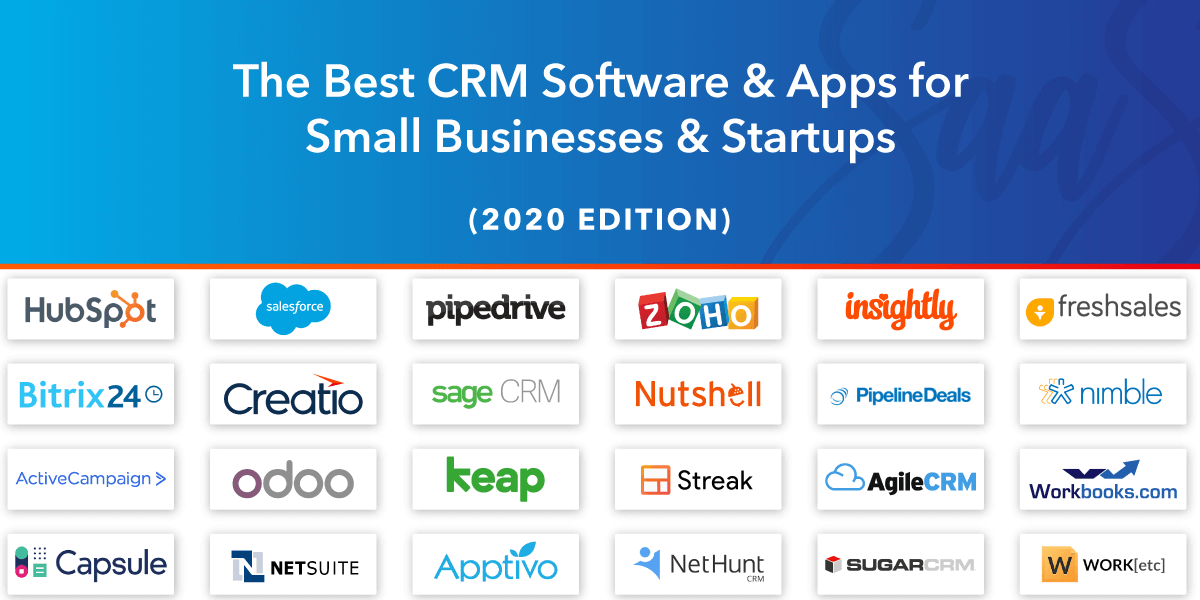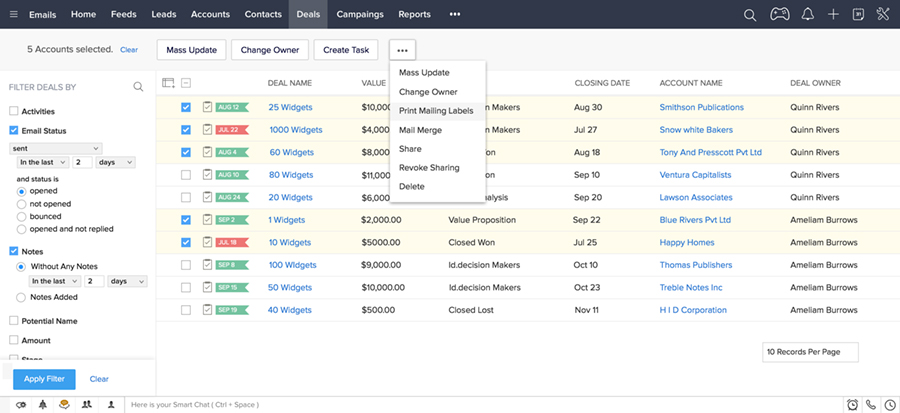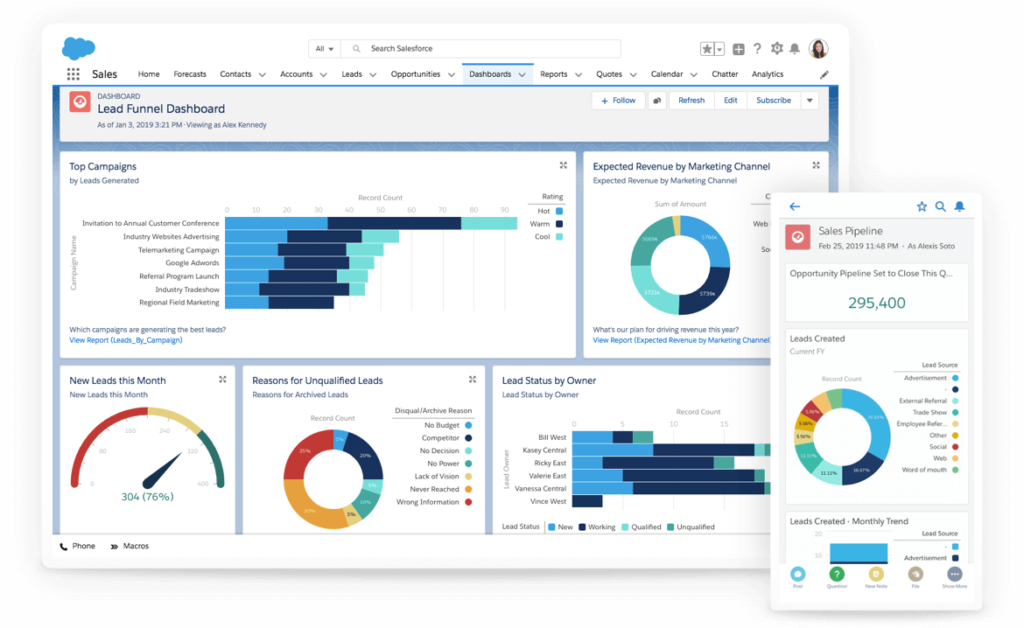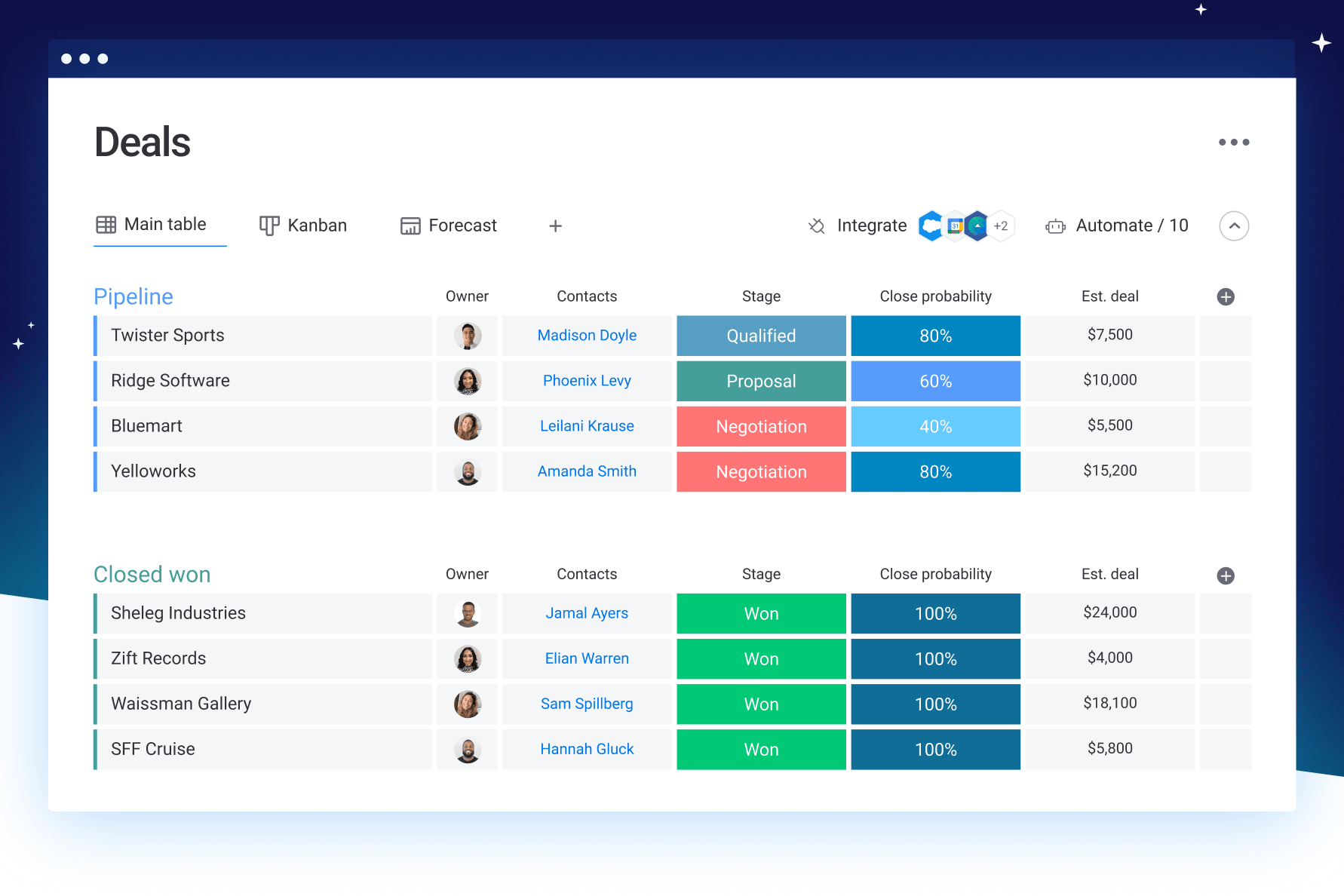Crm products – Customer Relationship Management (CRM) products are revolutionizing the way businesses connect with their customers. These powerful tools offer a comprehensive suite of features designed to streamline interactions, enhance customer satisfaction, and drive business growth.
CRM products empower businesses to centralize customer data, track interactions, automate marketing campaigns, and provide personalized support. By leveraging these capabilities, organizations can gain a deeper understanding of their customers’ needs, preferences, and behaviors.
Customer Relationship Management (CRM) Products

Customer Relationship Management (CRM) products are software applications designed to manage and track interactions with customers throughout their lifecycle. They help businesses build and maintain strong relationships with their customers, improve customer satisfaction, and increase sales and profitability.
CRM products offer a wide range of features, including:
- Contact management: Store and manage customer contact information, including name, address, phone number, and email address.
- Sales tracking: Track the progress of sales opportunities, from initial contact to close.
- Marketing automation: Automate marketing campaigns, including email marketing, social media marketing, and web analytics.
- Customer service management: Manage customer inquiries, complaints, and support requests.
- Reporting and analytics: Generate reports and dashboards to track key metrics and identify areas for improvement.
CRM products can be used by businesses of all sizes, from small businesses to large enterprises. They are particularly beneficial for businesses that have a large number of customers or that rely on customer relationships for their success.
Benefits of Using CRM Products
There are many benefits to using CRM products, including:
- Improved customer satisfaction: CRM products can help businesses improve customer satisfaction by providing a central repository for all customer information and interactions.
- Increased sales: CRM products can help businesses increase sales by providing sales teams with the tools they need to track leads, manage opportunities, and close deals.
- Improved marketing effectiveness: CRM products can help businesses improve marketing effectiveness by providing marketers with the data they need to target their campaigns and measure their results.
- Reduced costs: CRM products can help businesses reduce costs by automating tasks and streamlining processes.
- Improved efficiency: CRM products can help businesses improve efficiency by providing a central platform for all customer-related activities.
Examples of Popular CRM Products
There are many popular CRM products on the market, including:
- Salesforce
- Microsoft Dynamics 365
- HubSpot
- Zoho CRM
- Freshsales
Types of CRM Products

Customer Relationship Management (CRM) products come in a variety of types, each tailored to specific business needs. These types can be broadly categorized based on their functionality, deployment model, and industry focus.
The key features of each type of CRM product vary depending on its purpose. Some common features include contact management, sales tracking, marketing automation, customer service, and analytics.
Operational CRM
Operational CRM focuses on automating and streamlining day-to-day customer interactions. It includes tools for:
- Sales force automation
- Marketing automation
- Customer service and support
Examples of operational CRM products include Salesforce Sales Cloud, HubSpot CRM, and Zoho CRM.
Analytical CRM
Analytical CRM focuses on collecting and analyzing customer data to gain insights into customer behavior and trends. It includes tools for:
- Data warehousing and business intelligence
- Customer segmentation and profiling
- Campaign performance analysis
Examples of analytical CRM products include Microsoft Dynamics 365 Customer Insights, SAP Hybris Customer Insights, and Oracle Siebel Analytics.
Collaborative CRM
Collaborative CRM focuses on facilitating communication and collaboration between different departments within an organization, such as sales, marketing, and customer service. It includes tools for:
- Team collaboration and communication
- Document and knowledge management
- Project management
Examples of collaborative CRM products include Salesforce Service Cloud, Zendesk, and Freshdesk.
Strategic CRM
Strategic CRM focuses on aligning CRM initiatives with the overall business strategy. It includes tools for:
- Customer lifetime value analysis
- Customer churn prediction
- Customer loyalty programs
Examples of strategic CRM products include IBM SPSS Modeler, SAS Customer Intelligence, and Teradata Customer Analytics.
CRM Product Features

CRM products offer a wide range of features that can help businesses improve their customer relationships. These features can be broadly categorized into three main areas: sales, marketing, and customer service.Sales features help businesses track and manage their sales pipeline, from lead generation to close.
These features can help businesses identify and qualify leads, prioritize sales opportunities, and close deals faster.Marketing features help businesses create and execute marketing campaigns, track campaign performance, and measure ROI. These features can help businesses reach their target audience, generate leads, and drive sales.Customer service features help businesses provide support to their customers, track customer interactions, and resolve customer issues.
These features can help businesses improve customer satisfaction, reduce churn, and build loyalty.
Benefits of CRM Products
Businesses that use CRM products can experience a number of benefits, including:
- Improved sales performance
- Increased marketing effectiveness
- Enhanced customer service
- Reduced costs
- Improved decision-making
Examples of CRM Success Stories
Many businesses have used CRM products to improve their sales, marketing, and customer service. Here are a few examples:
- Salesforce: Salesforce is a leading CRM provider that has helped businesses of all sizes improve their sales performance. One example is a company called Marketo, which used Salesforce to increase its sales pipeline by 25%.
- HubSpot: HubSpot is a CRM provider that offers a suite of marketing, sales, and customer service tools. One example is a company called Unbounce, which used HubSpot to increase its conversion rate by 20%.
- Zendesk: Zendesk is a CRM provider that offers a customer service platform. One example is a company called Airbnb, which used Zendesk to reduce its customer support response time by 50%.
CRM Product Evaluation: Crm Products
Evaluating CRM products is a crucial step in selecting the right solution for a business. By considering various factors and following a structured approach, businesses can ensure they choose a CRM that meets their specific needs and drives business success.
Factors to Consider:
- Business objectives: Define the goals and challenges that the CRM should address.
- Industry and company size: Consider the specific requirements of the industry and the size of the organization.
- Budget: Determine the financial constraints and ensure the CRM fits within the budget.
- Integration: Assess the need for integration with other systems, such as ERP, marketing automation, or accounting software.
- Scalability: Consider the potential for future growth and choose a CRM that can scale with the business.
Step-by-Step Guide to Evaluating CRM Products:
- Identify Requirements:Clearly define the business needs and objectives that the CRM should fulfill.
- Research Options:Explore different CRM vendors and solutions that align with the identified requirements.
- Request Demos:Schedule demos with potential vendors to see the CRM in action and ask specific questions.
- Evaluate Features:Compare the features and capabilities of different CRMs against the business requirements.
- Consider Integration:Assess the ease and cost of integrating the CRM with existing systems.
- Review Pricing:Compare the pricing models and subscription options of different CRMs.
- Seek References:Reach out to existing customers of potential CRM vendors to gather feedback and insights.
- Make a Decision:Based on the evaluation, select the CRM that best meets the business needs and objectives.
Tips for Selecting the Right CRM Product:
- Involve key stakeholders in the evaluation process to ensure alignment.
- Consider the long-term value and ROI of the CRM investment.
- Look for a CRM that provides ongoing support and updates.
- Choose a CRM that is user-friendly and easy to adopt.
- Consider the vendor’s reputation and industry expertise.
CRM Product Implementation

Implementing a CRM product involves careful planning and execution. Here are the key steps:
- Define your business goals and objectives for using a CRM system.
- Select a CRM product that aligns with your business needs and budget.
- Customize the CRM system to fit your specific business processes.
- Integrate the CRM system with your other business applications.
- Train your team on how to use the CRM system effectively.
- Monitor and evaluate the performance of your CRM system regularly.
Tips for Ensuring a Successful CRM Implementation
- Get buy-in from all stakeholders.
- Start with a small pilot project.
- Involve your team in the implementation process.
- Be patient and persistent.
- Measure your results and make adjustments as needed.
Case Studies of Businesses that Have Successfully Implemented CRM Products
- Salesforce: Salesforce is a leading CRM provider that has helped businesses of all sizes improve their sales, marketing, and customer service operations.
- Microsoft Dynamics CRM: Microsoft Dynamics CRM is a popular CRM solution that is integrated with other Microsoft products, such as Office 365 and Power BI.
- Zoho CRM: Zoho CRM is a cloud-based CRM solution that is affordable and easy to use.
CRM Product Integration
Integrating CRM products with other business systems can streamline processes, improve data accuracy, and enhance customer experiences.By connecting CRM systems with other applications, businesses can automate tasks, share data seamlessly, and gain a comprehensive view of their customers. This integration enables organizations to respond to customer needs promptly, personalize interactions, and make informed decisions based on real-time data.
Step-by-Step Guide to CRM Product Integration, Crm products
Integrating CRM products requires careful planning and execution. Here’s a step-by-step guide to ensure a successful integration:
1. Define Integration Goals
Determine the specific objectives of the integration, such as improving customer service, increasing sales efficiency, or enhancing marketing campaigns.
2. Select Compatible Systems
Choose CRM products and other business systems that are compatible and support the required integrations.
3. Map Data Fields
Identify the data fields that need to be shared between the systems and establish clear mapping rules to ensure data integrity.
4. Establish Integration Method
Determine the appropriate integration method, such as API integration, data synchronization, or third-party connectors.
5. Configure and Test
Configure the integration settings and thoroughly test the functionality to ensure seamless data transfer and system performance.
6. Monitor and Maintain
Regularly monitor the integration process and make necessary adjustments to maintain data accuracy and system stability.
Examples of Successful CRM Product Integrations
Numerous businesses have successfully integrated CRM products with other systems to improve their operations. Here are a few examples:
Salesforce and Zendesk
Salesforce, a leading CRM platform, integrated with Zendesk, a customer service software, to provide a seamless customer support experience. This integration enabled sales teams to access customer support tickets and customer profiles within Salesforce, improving collaboration and response times.
Microsoft Dynamics 365 and Power BI
Microsoft Dynamics 365, a comprehensive CRM solution, integrated with Power BI, a data analytics platform, to provide real-time insights into customer behavior. This integration allowed businesses to analyze customer data and make informed decisions based on data-driven insights.
HubSpot and Slack
HubSpot, a marketing and CRM platform, integrated with Slack, a team communication tool, to facilitate collaboration and streamline communication. This integration enabled sales and marketing teams to share customer information and updates in real-time, improving team efficiency and customer engagement.
CRM Product Trends
The CRM industry is constantly evolving, with new trends emerging all the time. These trends are shaping the future of CRM, and it is important for businesses to be aware of them in order to stay ahead of the curve.
One of the most important trends in CRM is the rise of artificial intelligence (AI). AI-powered CRM systems can automate tasks, provide insights into customer data, and even make predictions about customer behavior. This can help businesses to improve their customer service, increase sales, and reduce costs.
Another major trend in CRM is the move to cloud-based systems. Cloud-based CRM systems are more flexible and scalable than on-premise systems, and they can be accessed from anywhere with an internet connection. This makes them ideal for businesses that have remote teams or that need to be able to access their CRM data on the go.
The Future of CRM Products
The future of CRM products is bright. As AI and cloud-based systems continue to evolve, CRM systems will become even more powerful and easier to use. This will make them even more essential for businesses of all sizes.
Here are a few predictions for the future of CRM products:
- AI will play an increasingly important role in CRM. AI-powered CRM systems will be able to automate more tasks, provide more insights into customer data, and make more accurate predictions about customer behavior.
- CRM systems will become more integrated with other business applications. This will make it easier for businesses to get a complete view of their customers and to manage all of their customer interactions in one place.
- CRM systems will become more mobile. This will make it easier for businesses to access their CRM data on the go and to manage their customer relationships from anywhere.
Closure
CRM products are an indispensable asset for businesses looking to improve customer engagement, boost sales, and build lasting relationships. As technology continues to evolve, CRM products will continue to play a vital role in shaping the future of customer-centric business practices.